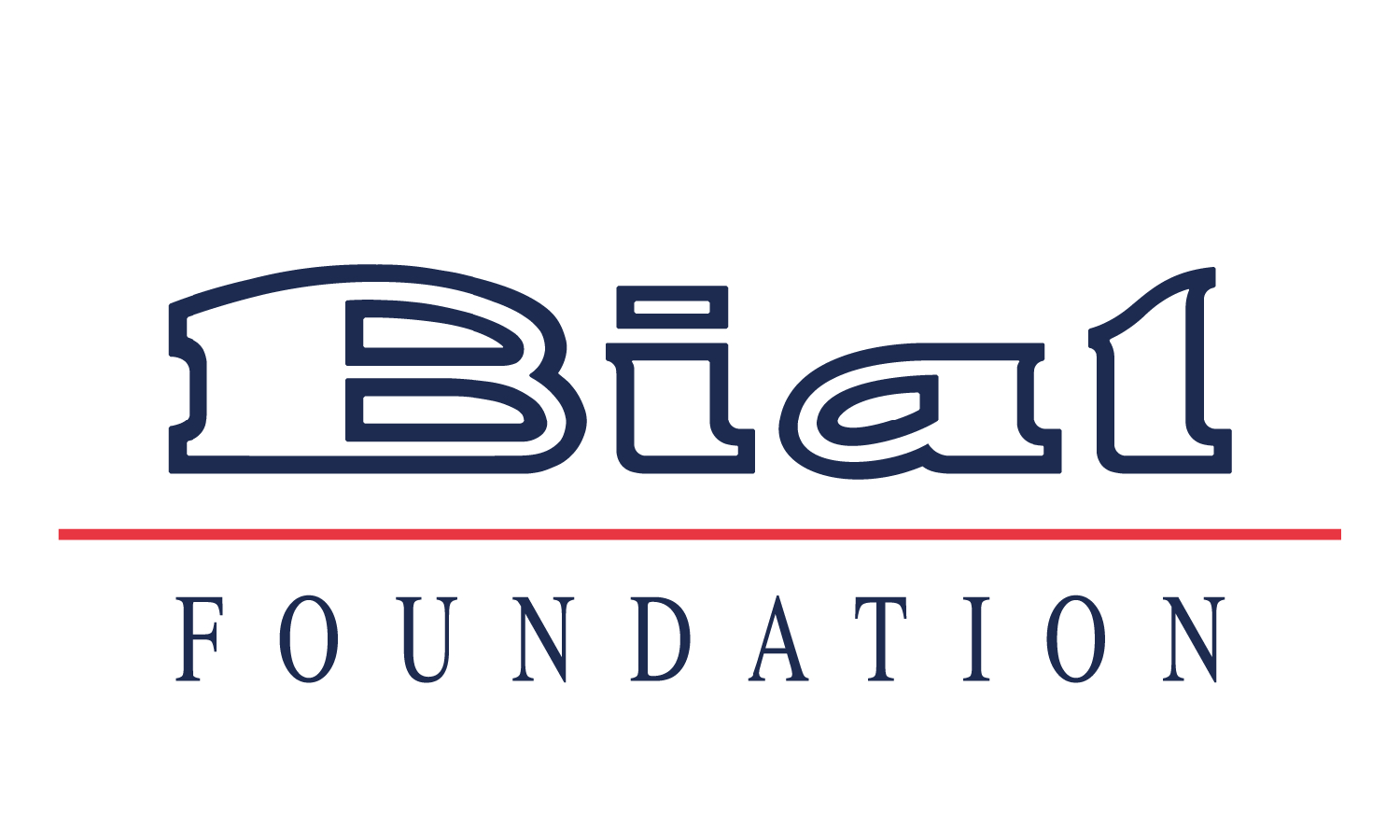Young researchers were awarded for their work on stem cells, stroke, ageing, fungal respiratory disease, and inflammatory bowel disease.
This year, included in the event celebrating the 30th anniversary of the BIAL Foundation, the award ceremony for the fourth edition of the Maria de Sousa Award took place on October 9th and was chaired by Prime Minister, Luís Montenegro. After the five winners took the stage to receive their awards, the much-awaited conference “On the Physiology of the Mind 2024” by António Damásio and Hanna Damásio took place, which filled the Aula Magna of the Reitoria da Universidade de Lisboa.


An audience of around 1,500 people, with nearly 3,000 watching online, applauded the five winners of the Maria de Sousa Award, all young researchers in health sciences.
The projects by Maria Arez (iBB, IST, U.Lisboa), Pedro Nascimento Alves (CEEM, FMUL, U. Lisboa, ULSSM), Ana Rita Araújo (i3S, U.Porto), Samuel Gonçalves (ICVS, U.Minho) and Joana Gaifem (i3S, U.Porto) were selected from 62 applications and focus on research in stem cells, stroke, ageing, fungal respiratory disease, and inflammatory bowel disease.
In an exclusive partnership of the Portuguese Medical Association and the BIAL Foundation, this award pays tribute to the leading Portuguese immunologist and researcher Maria de Sousa, who will always be remembered as a unique personality in science worldwide.
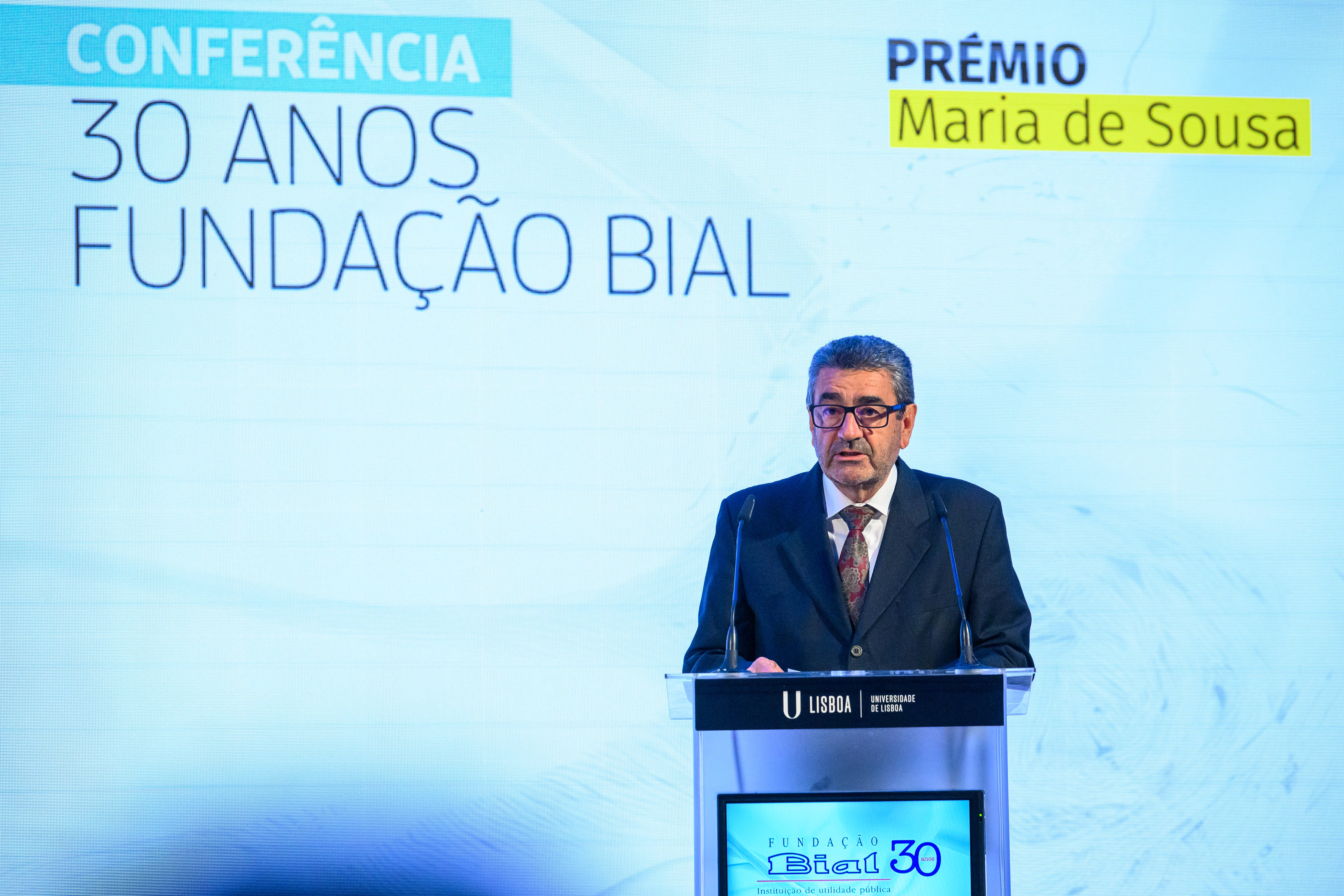
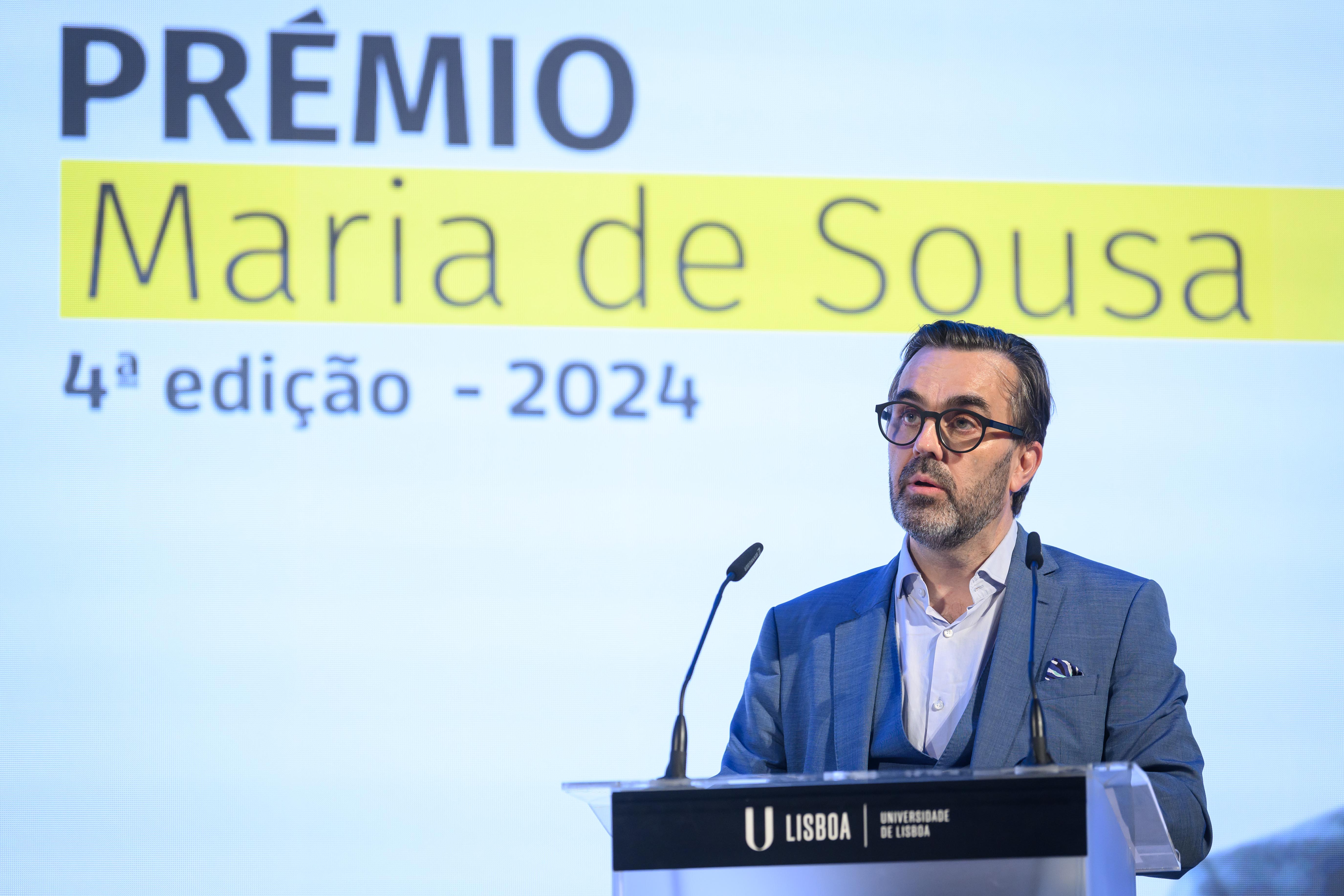
After the opening speech by host Luís Ferreira, Rector of the Universidade de Lisboa, who congratulated the BIAL Foundation on its anniversary and praised "the work done by António and Hanna Damásio on how we understand the human mind", the President of the Portuguese Medical Association, Carlos Cortes, spoke, highlighting the BIAL Foundation's contribution to the development of science and research in Portugal. "Today we are facing a new achievement unprecedented in human history, artificial intelligence, which is raising challenges in healthcare, medicine and science", he said.
This was followed by a speech by the president of the Jury of the Maria de Sousa Award, Rui Costa, who evoked the scientist after whom the award is named, remembering her as one of the greatest figures in scientific research in Portugal. The award was created to “honour Maria's extraordinary contribution to the field of health, with fundamental discoveries with clinical application and her exceptional contribution to encouraging new generations of Portuguese researchers”. The neuroscientist recalled that Maria de Sousa was "one of the most remarkable immunological scientists in the world, having discovered the migration of T lymphocytes and the thymus-dependent areas in secondary organs".
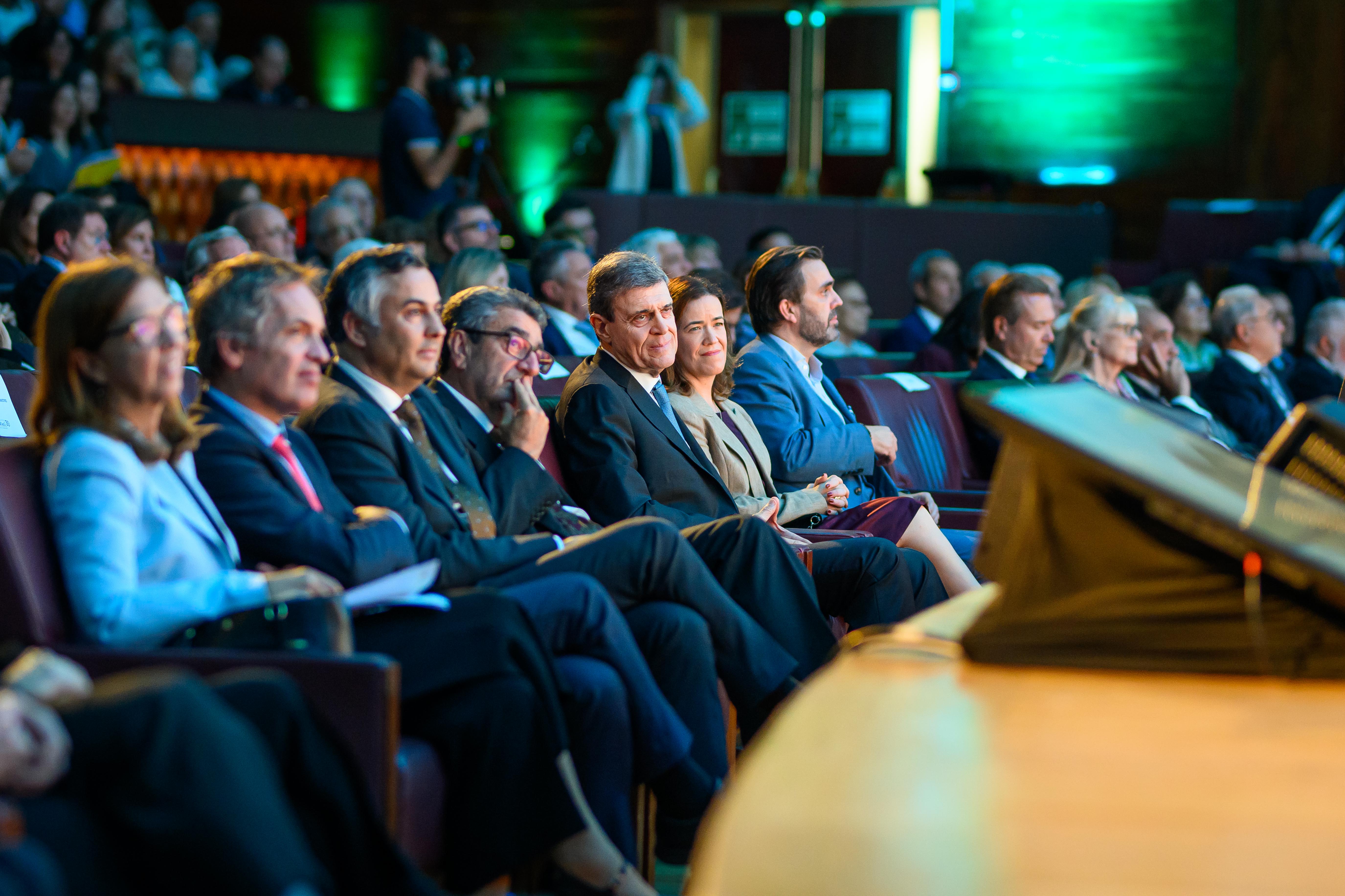
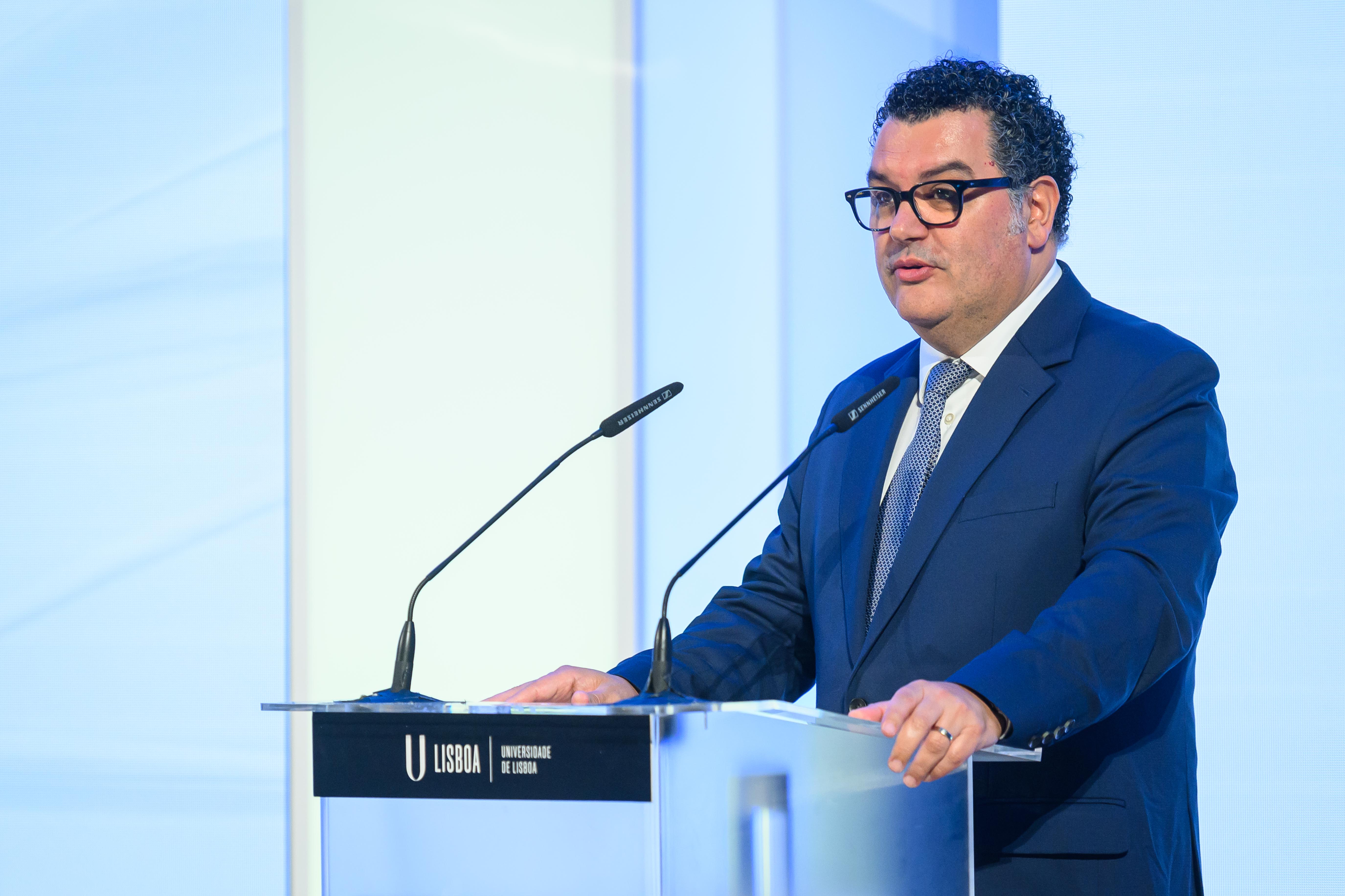
In addition to Rui Costa, the Jury is composed of researchers who were very close to Maria de Sousa: Maria do Carmo Fonseca, president of the Institute of Molecular Medicine (iMM) of the Faculty of Medicine of the University of Lisbon, Miguel Castelo-Branco, director of the Center for Biomedical Imaging and Translational Research (CIBIT) at the University of Coimbra, Joana Palha, full professor at the School of Medicine of the University of Minho, and João Relvas, researcher and group leader at the Institute for Research and Innovation in Health Sciences (i3S) of the University of Porto.
After the award ceremony and the presentation of the winning projects, the President of the Council of Rectors of Portuguese Universities (CRUP), Paulo Jorge Ferreira, took the floor, highlighting the 100th anniversary of BIAL, the 40th anniversary of the first award created by the pharmaceutical company and the 30th anniversary of the BIAL Foundation, so he found “a triple reason to wish them happy anniversaries”. "It's natural that the partnership between the BIAL Foundation and the CRUP should be maintained, expanded, and developed because they are institutions with the same interest in talent, science, knowledge, and the transformation for a better country".
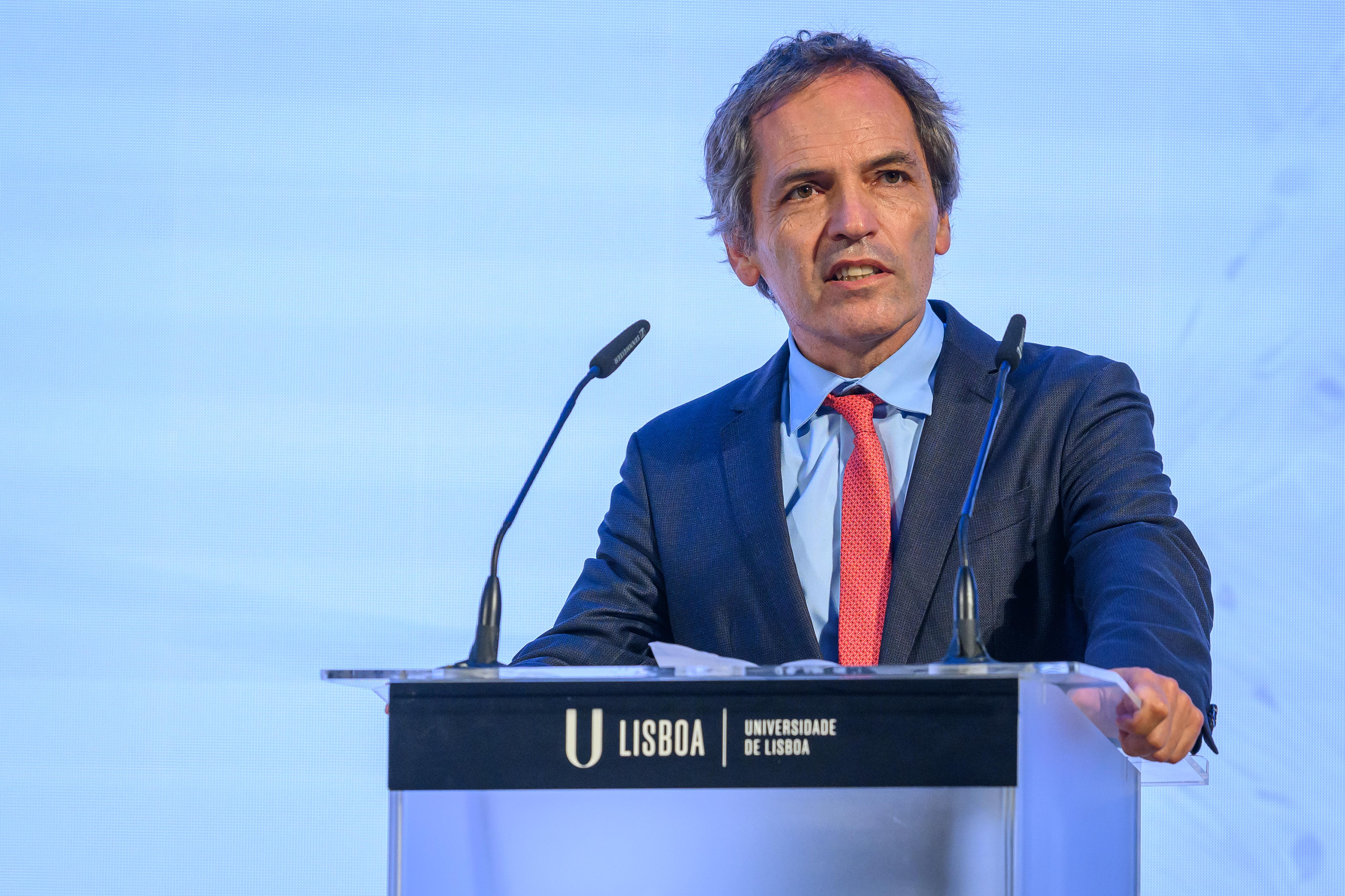
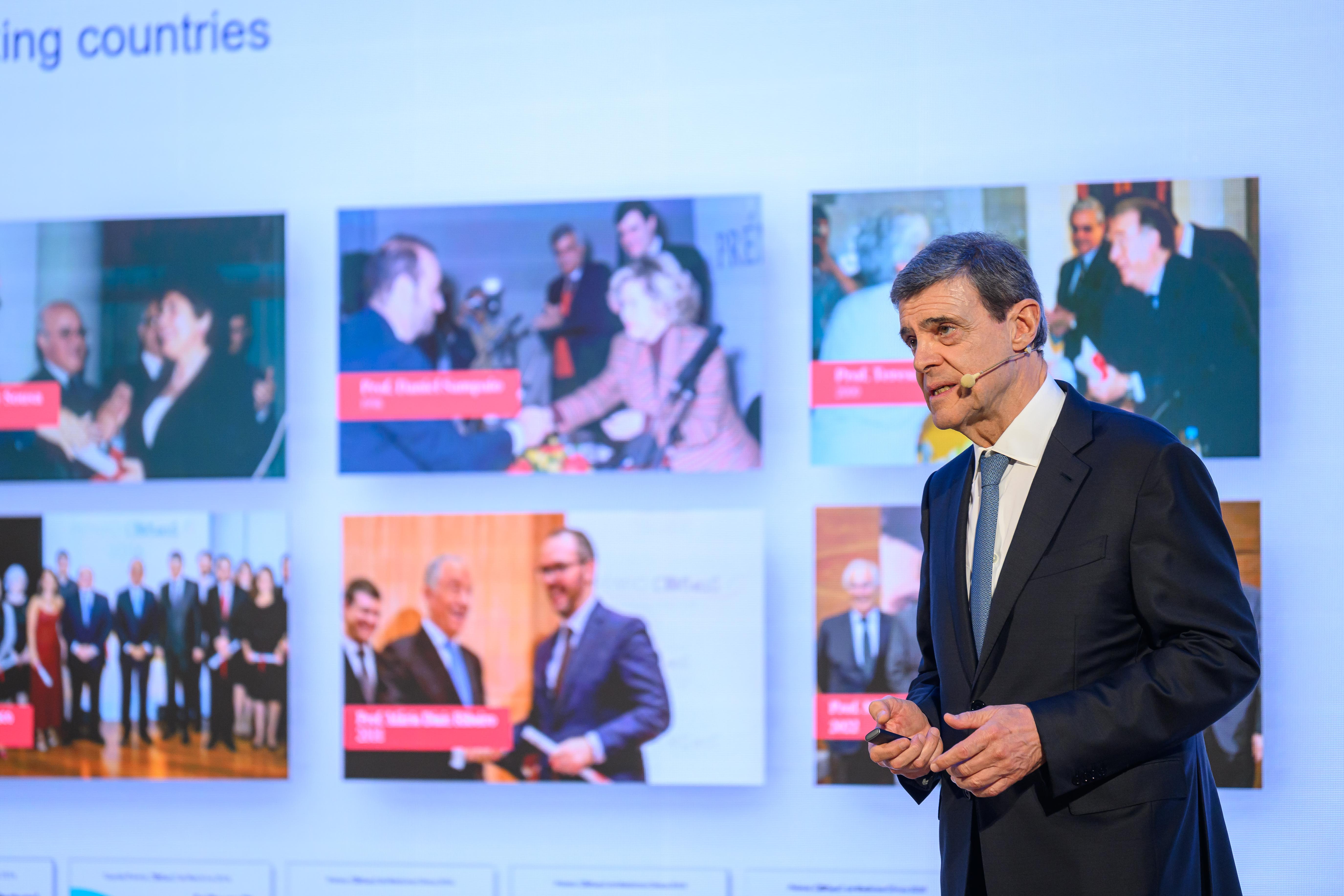
Next, attention turned to the speech by the Founder and Chairman of the BIAL Foundation, Luís Portela, who covered the Foundation's entire history, from the creation of the BIAL Award in 1984, which was managed by BIAL for ten years, with special emphasis on the creation of the Foundation in 6th May 1994, witnessed by Mário Soares and Paulo Mendo, to the creation of the Grants for Scientific Research, the ‘Behind and Beyond the Brain’ Symposia, the BIAL Award in Biomedicine, and more recently, the Maria de Sousa Award.
In an emotional speech, which was interrupted at times by applause from the audience, Luís Portela remembered the men and women who made up the BIAL Foundation and were the driving force behind the development of the institution, expressing his “deep gratitude for the competent, dedicated and passionate way in which, through the BIAL Foundation, they have been able to serve the interests of developing science in health”.
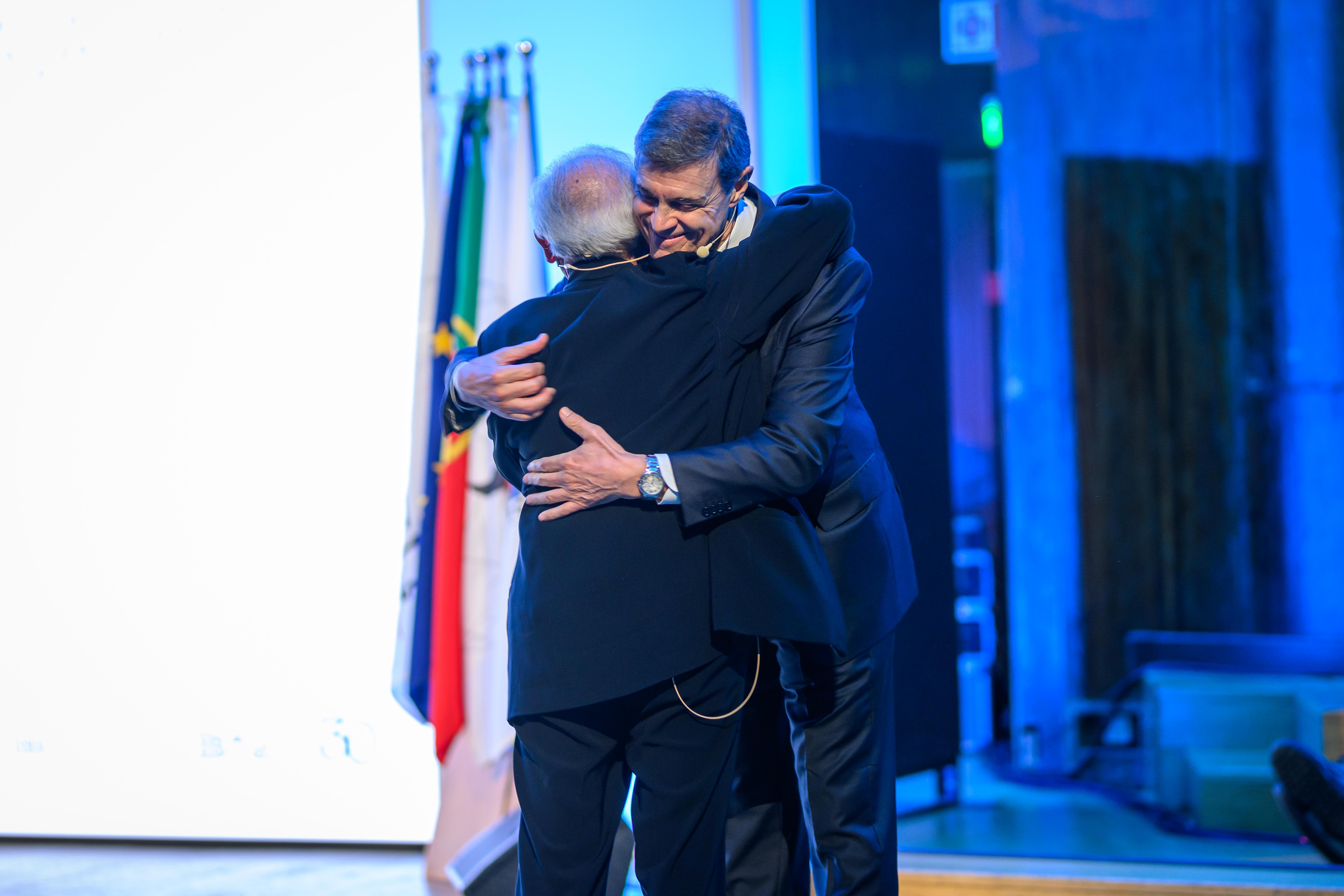
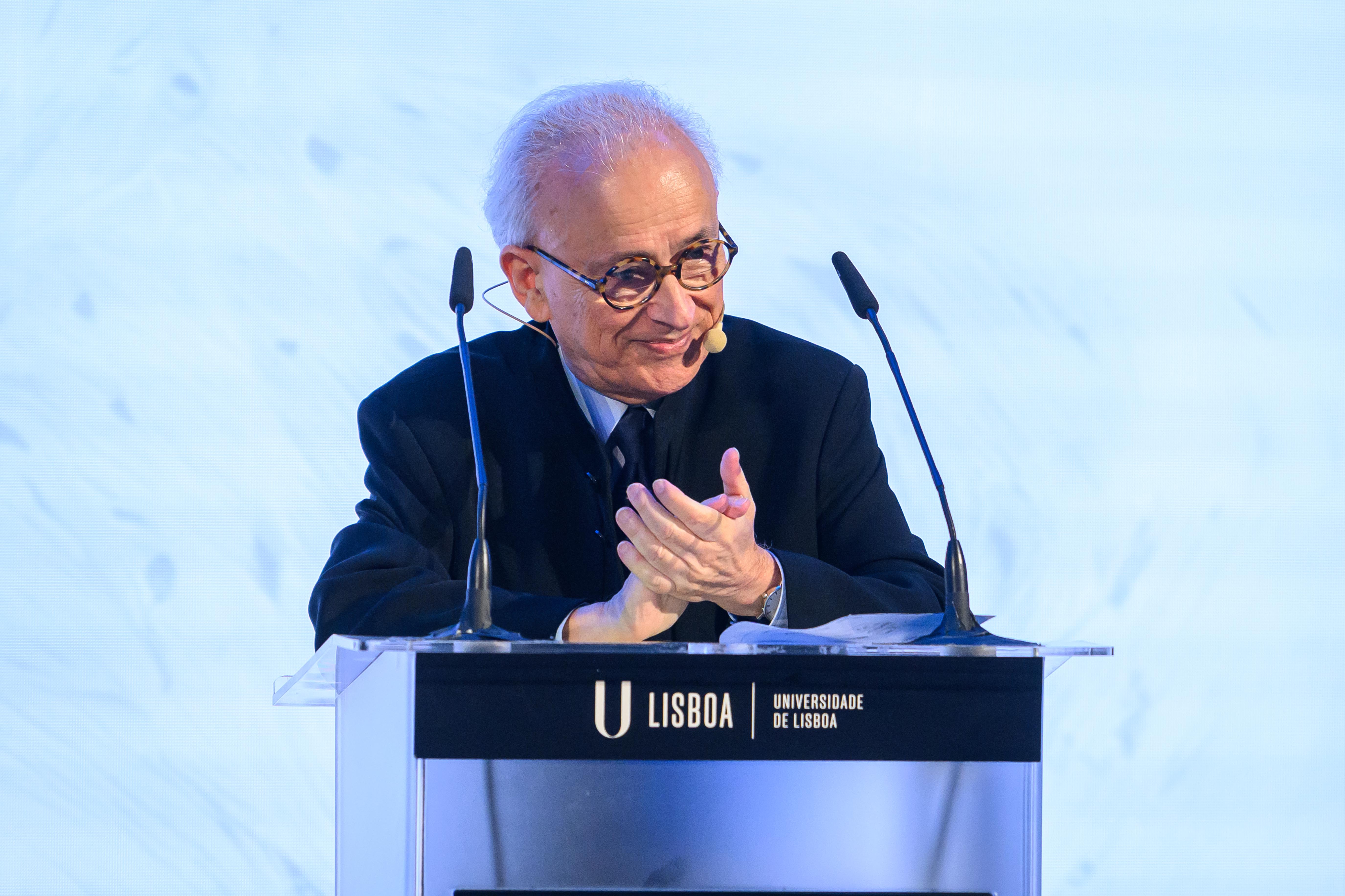
It was a remarkable moment when António Damásio, a world-renowned neuroscientist, took to the stage to overwhelming collective applause from a filled Aula Magna. In the lecture ‘On the Physiology of the Mind 2024’, jointly prepared with Hanna Damásio, the president of the BIAL Foundation's Scientific Board began by sharing a story about the couple's friendship with the scientist Maria de Sousa.
Arousing the curiosity of the participants from the moment his visit to Portugal was announced, António Damásio spoke for around an hour about the different characteristics of the conscious human mind. To the question ‘what is consciousness?’, the renowned scientist replied that ‘consciousness results from homeostatic feeling states which describe qualities and intensities of the ongoing life process, all of which are spontaneously conscious’. There was also time for António and Hanna Damásio to interact with the audience, answering questions raised by the participants.
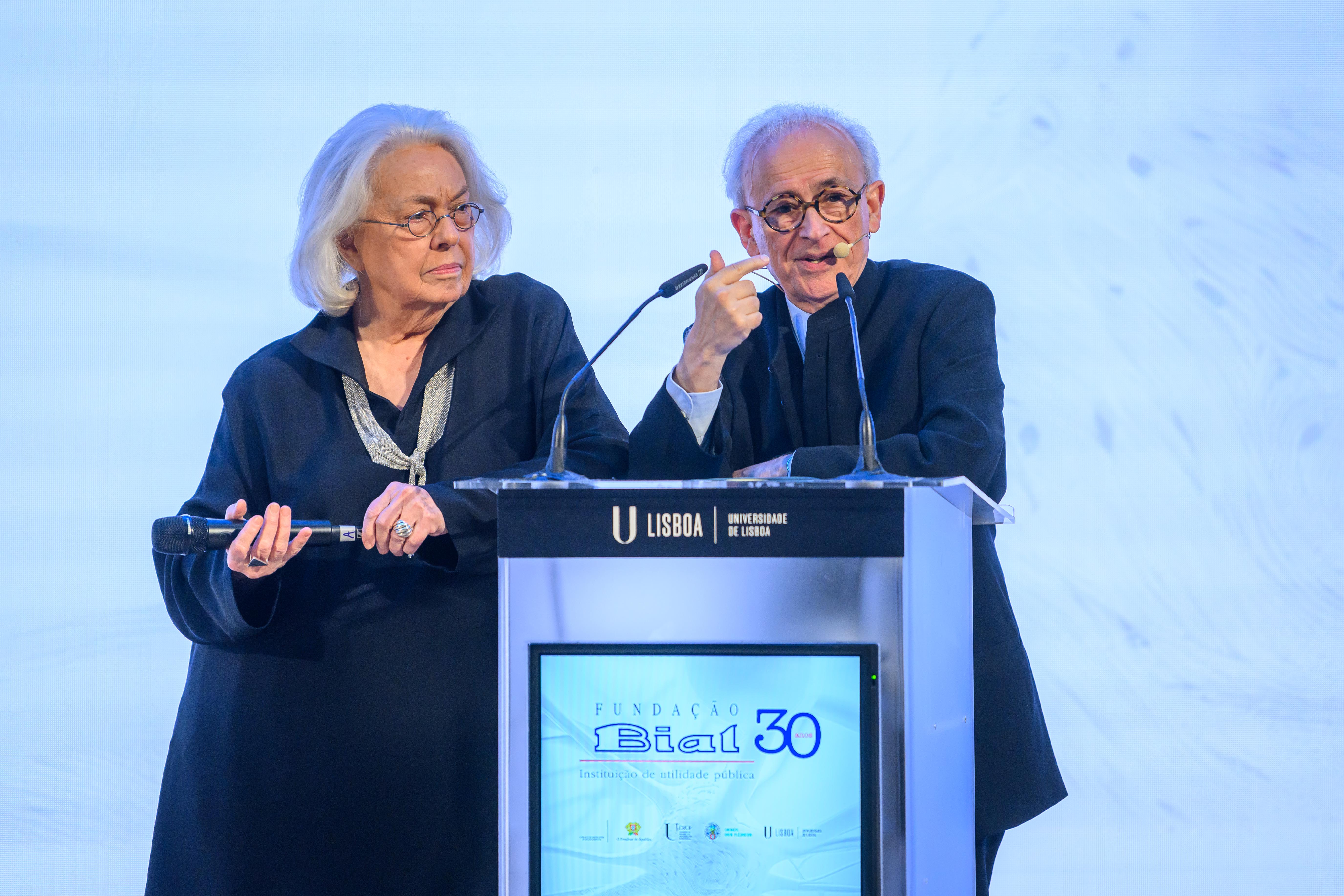
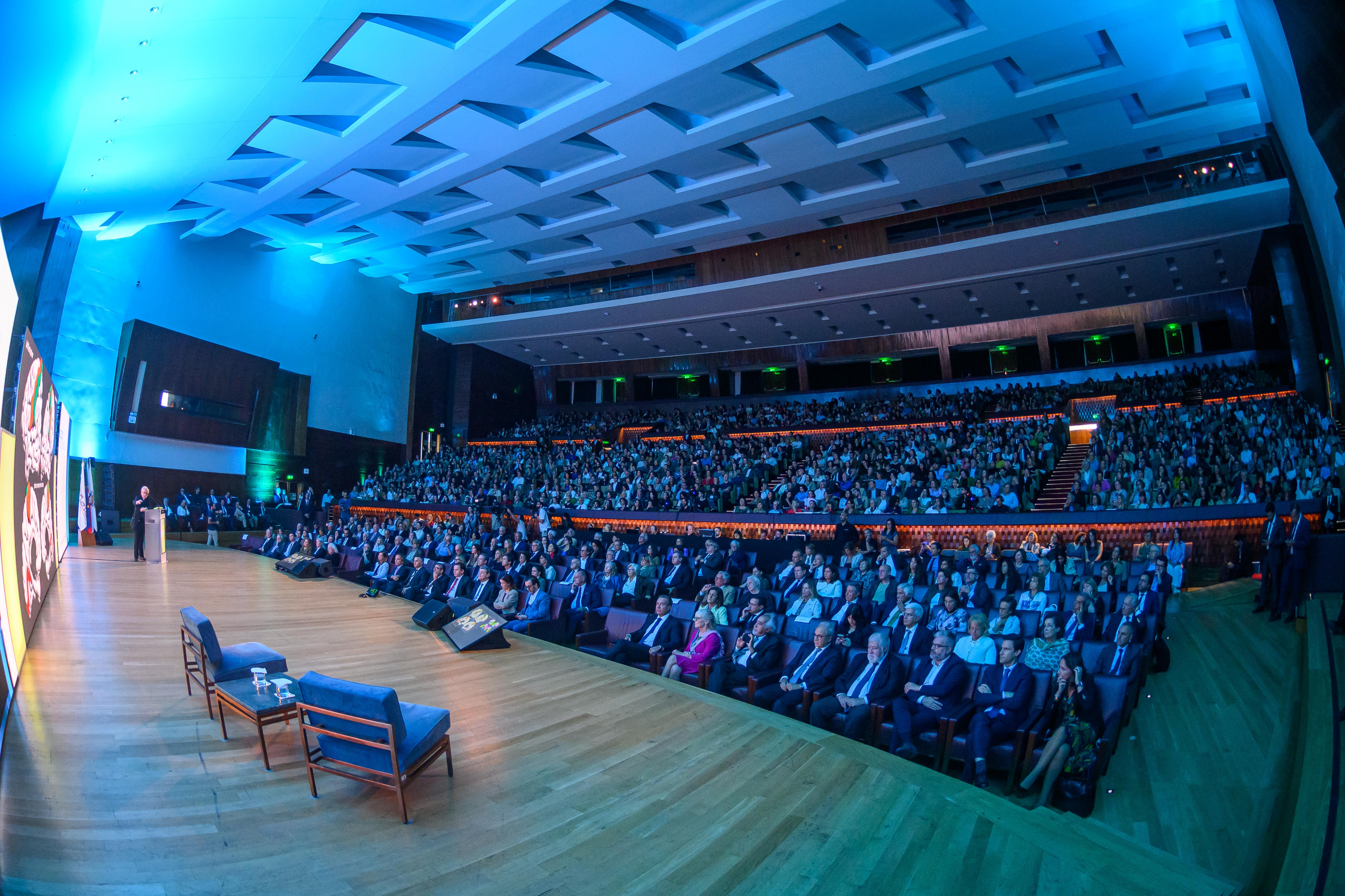
Closing the session, the Prime Minister praised the work of the BIAL Foundation, recalling the virtue of “bringing together universities, companies, associations or foundations, and all joining forces in an endeavour, even without any need for public funding, to deepen the dimension that science and knowledge bring us and which then has an application in people's lives”.
Regarding the research of the winners of the Maria de Sousa Award, Luís Montenegro emphasised that “it is a demonstration that it is worth investing in knowledge and it is worth that some resources, even from companies, from private initiative, can be allocated to something immaterial, that is universal”.
The award, which had its first edition in 2021, is awarded annually to five young researchers, worth up to €30,000 each, including a mandatory internship at an international center of excellence. The next edition is scheduled for 2025.
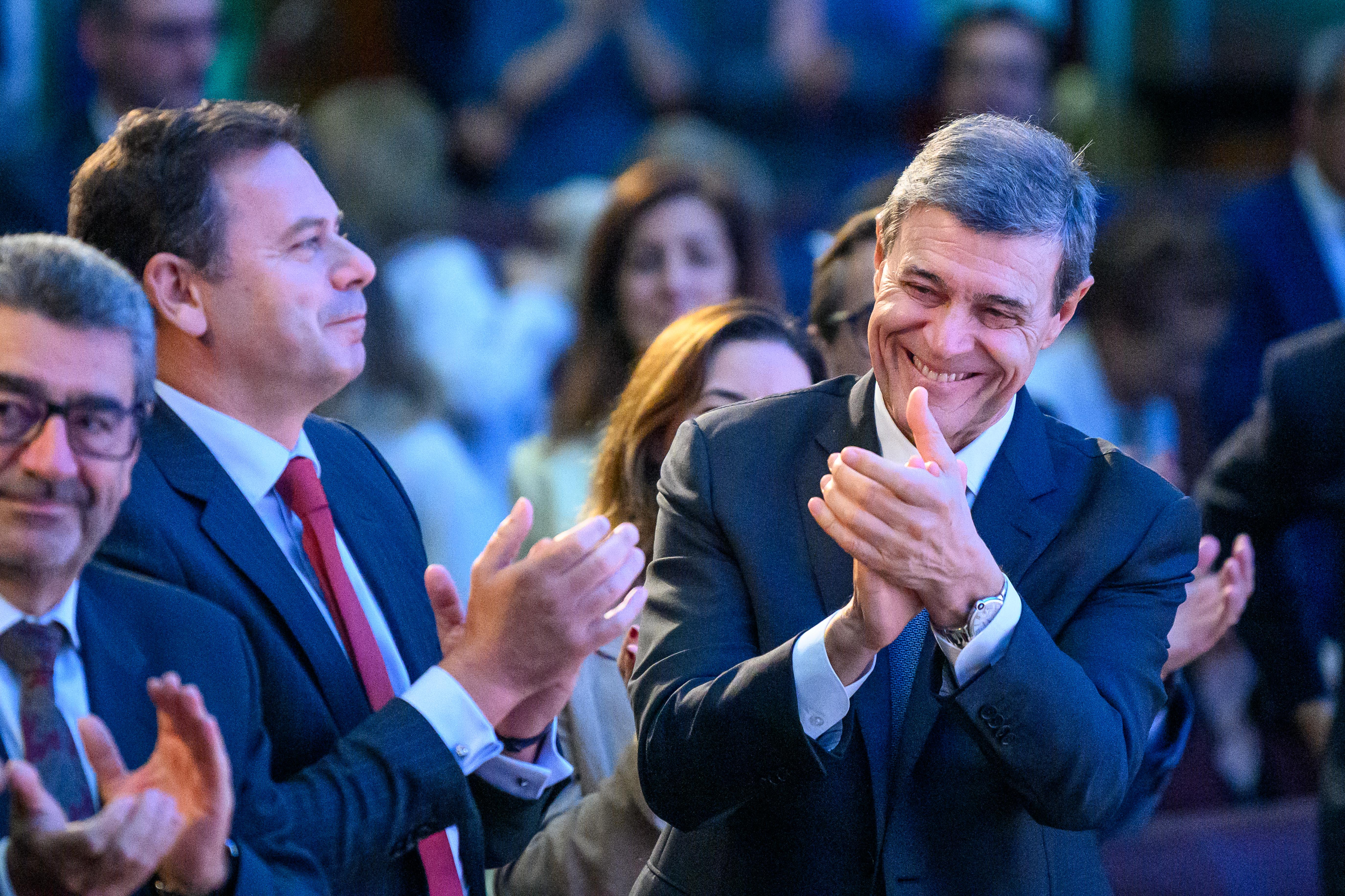
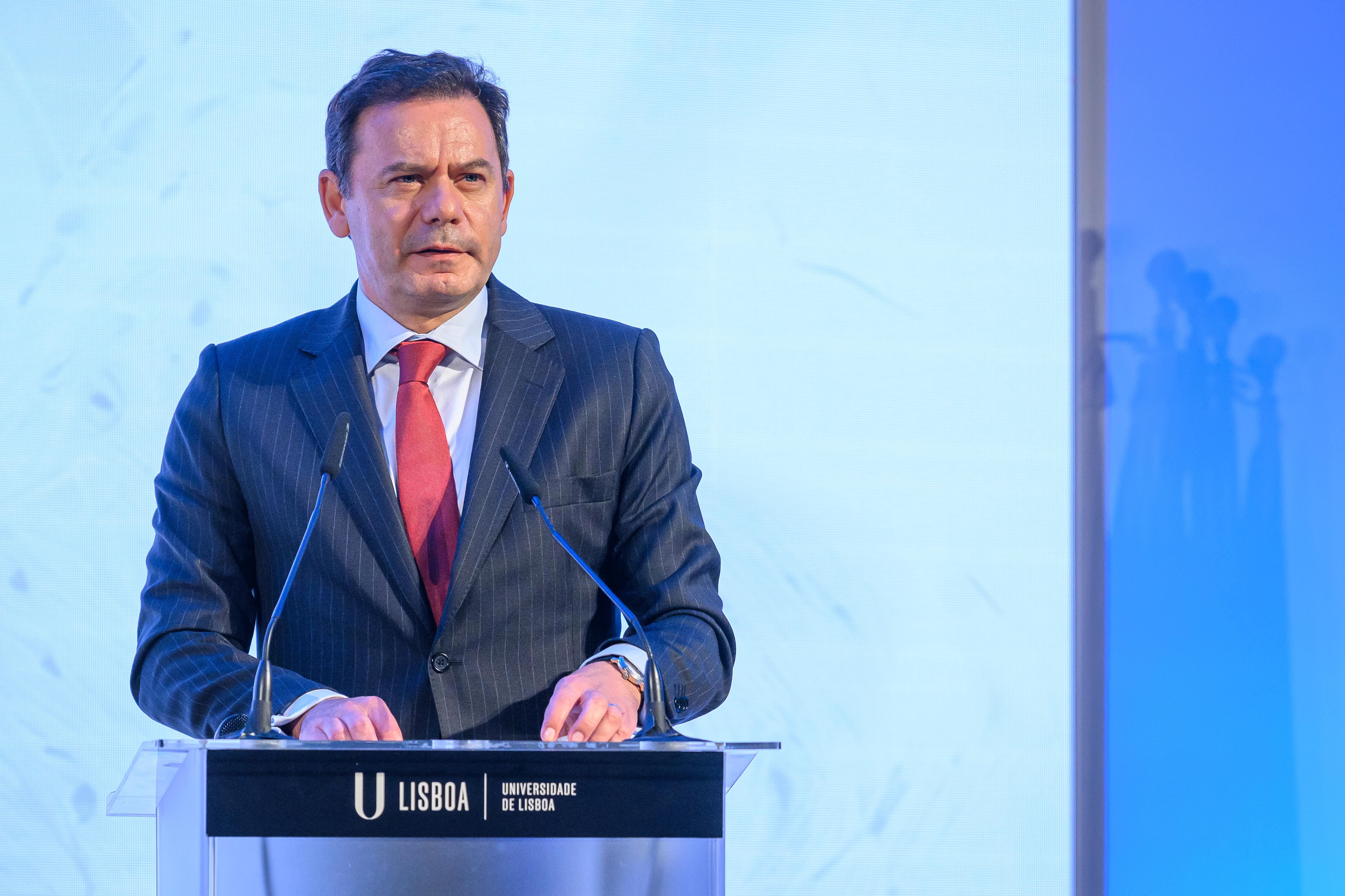
Awarded projects
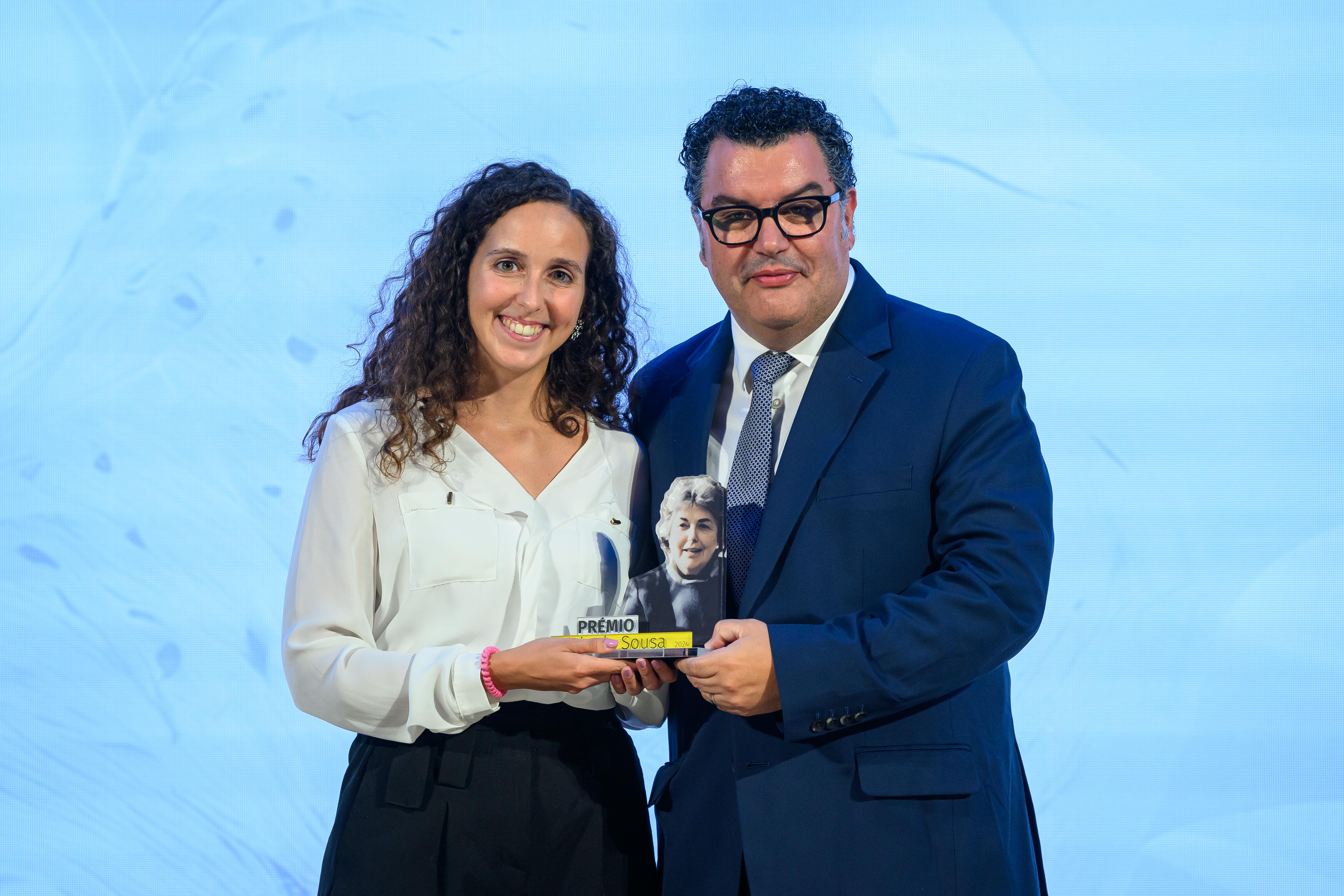
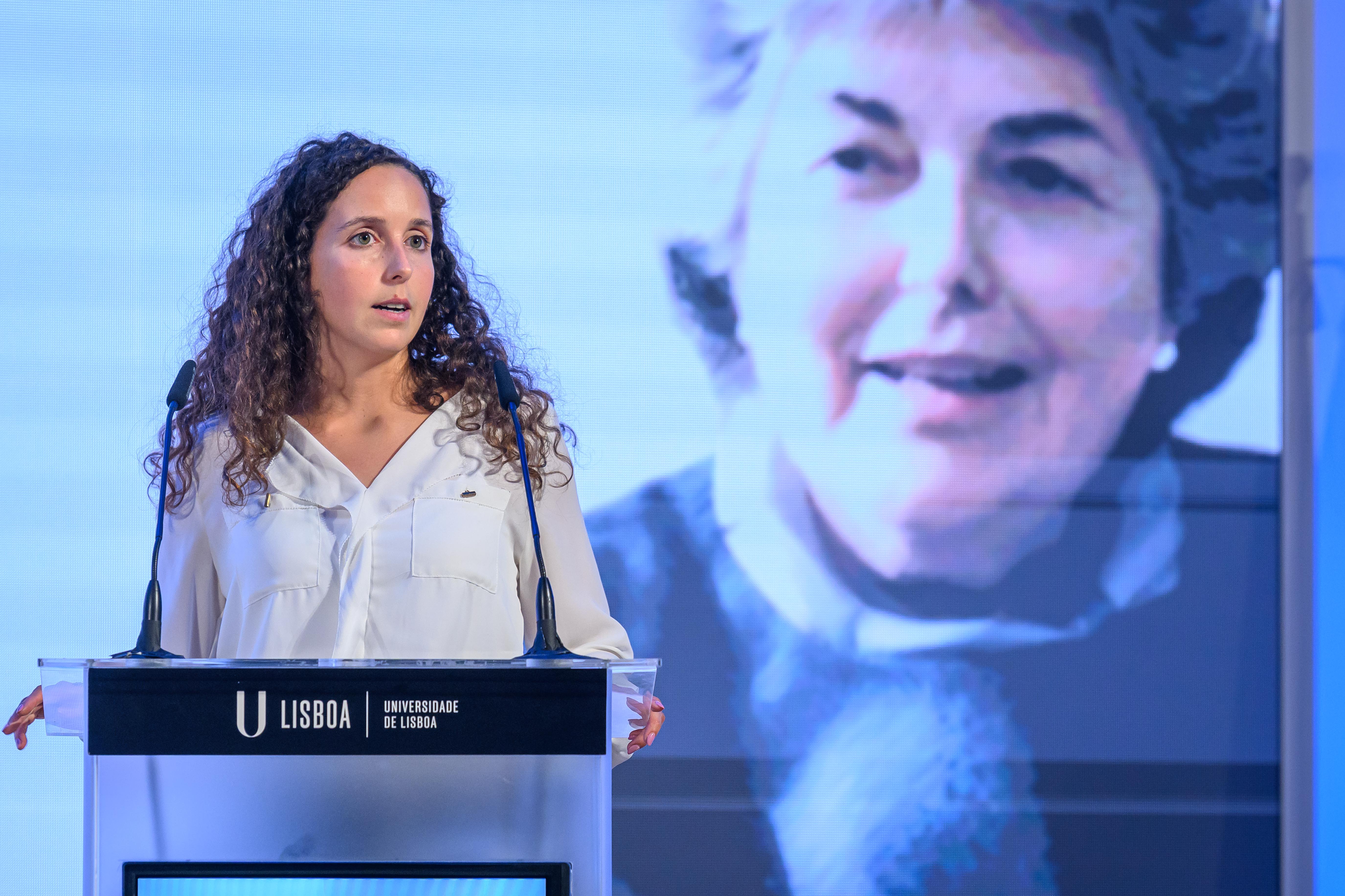
Maria Arez | A new approach to correct genomic imprinting defects during iPSC reprogramming
The discovery of induced pluripotent stem cells (iPSCs) has revolutionised biomedicine, enabling personalised methods in regenerative medicine and the development of disease models. However, iPSCs face challenges that limit their clinical use. This work aims to understand the causes of the errors that occur during the creation of iPSCs and, with this, to develop an innovative method to avoid these defects, thus guaranteeing the integrity of these cells. The success of this work will make a significant contribution to the stem cell field by improving the safety and efficacy of iPSCs in scientific and clinical contexts.
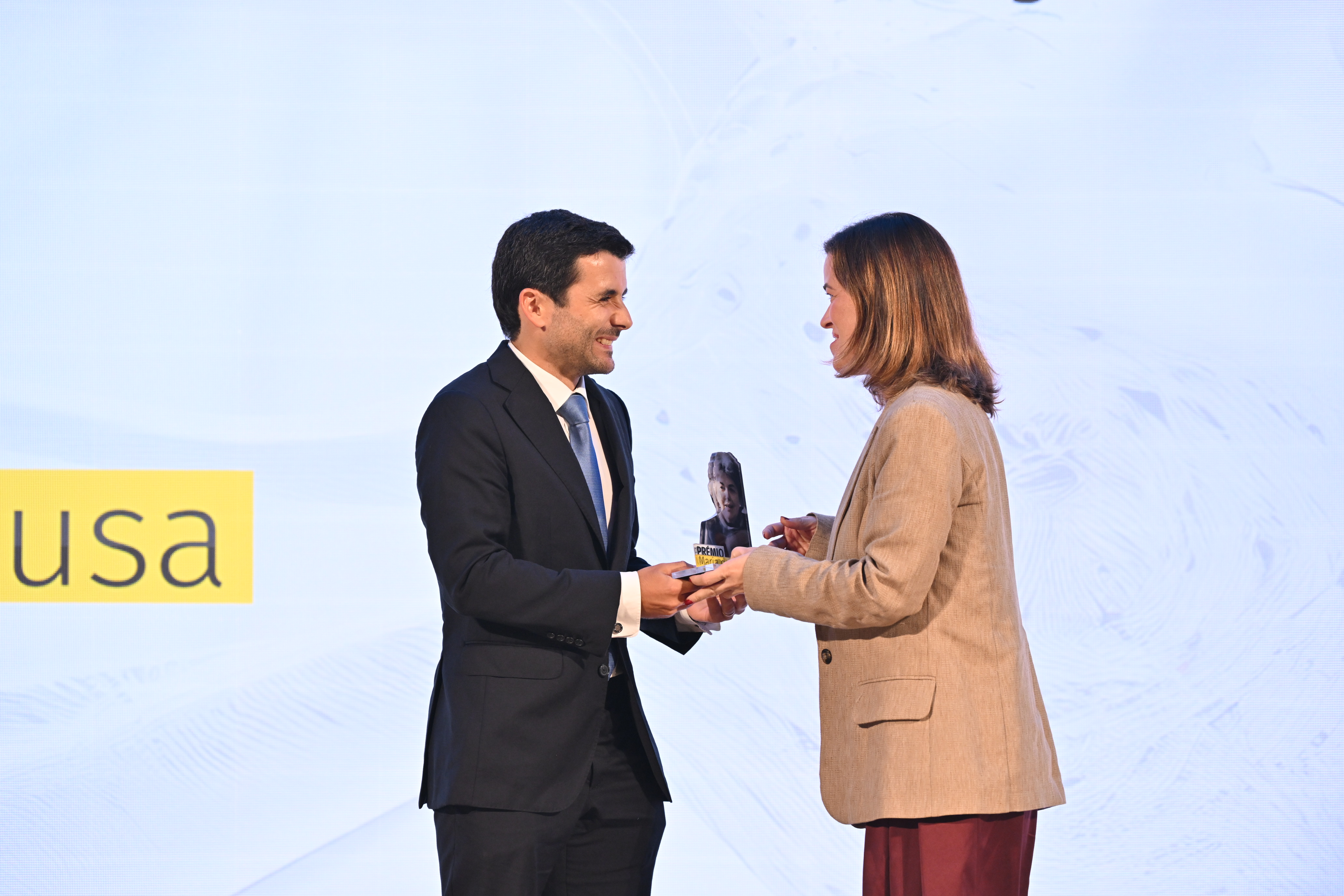
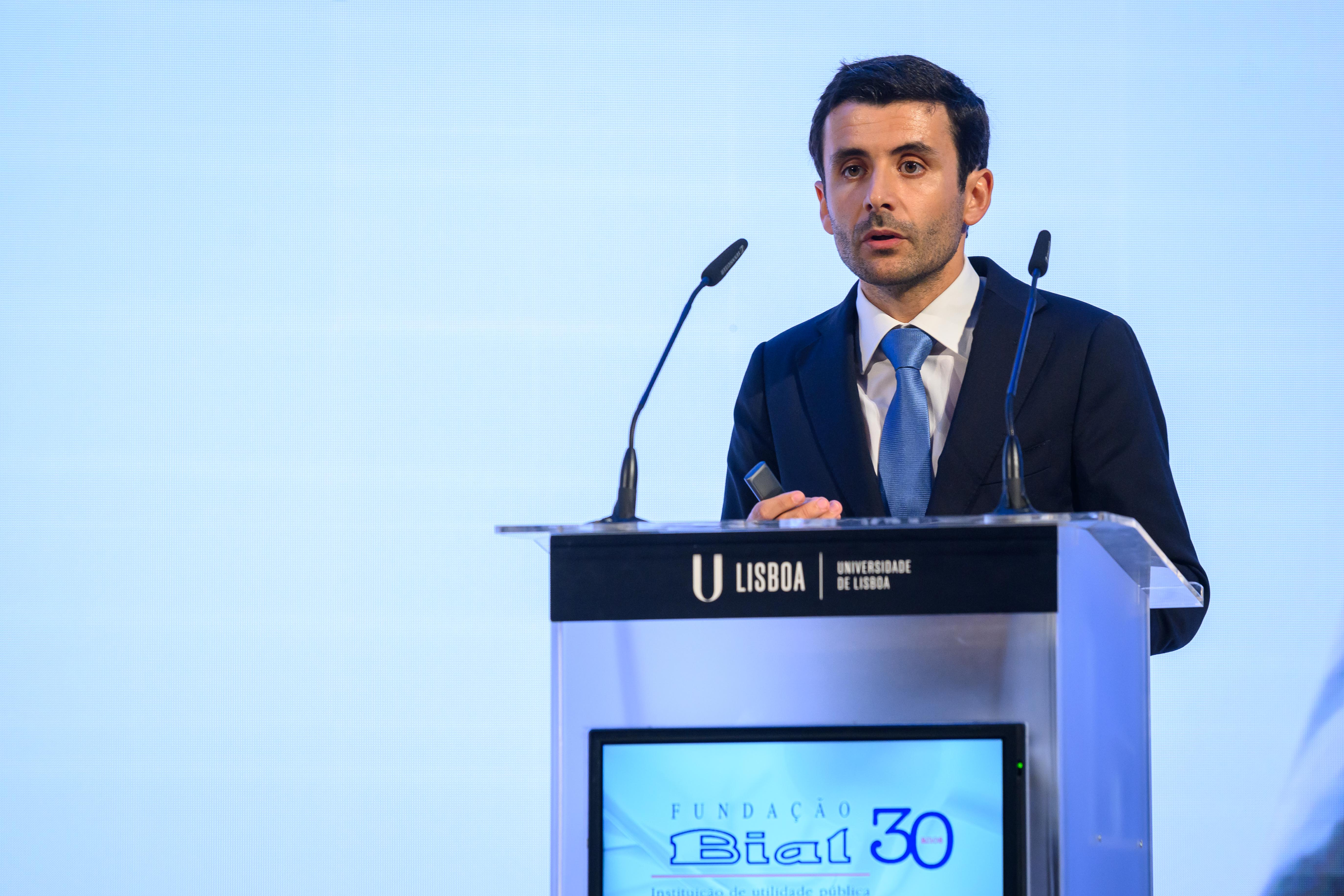
Pedro Nascimento Alves | Tailored neurotransmitter circuits modulation of stroke patients
Stroke is one of the main causes of cognitive alterations and there is a proven link between these and the dysfunction of neurotransmission circuits. There is currently no pharmacological treatment for post-stroke cognitive deficits. Recently, we developed a new atlas of neurotransmitter circuits in the brain, and created NeuroT-Map, a method for quantifying the impact of stroke lesions on the dysfunction of these circuits, opening up the possibility of personalised therapies.

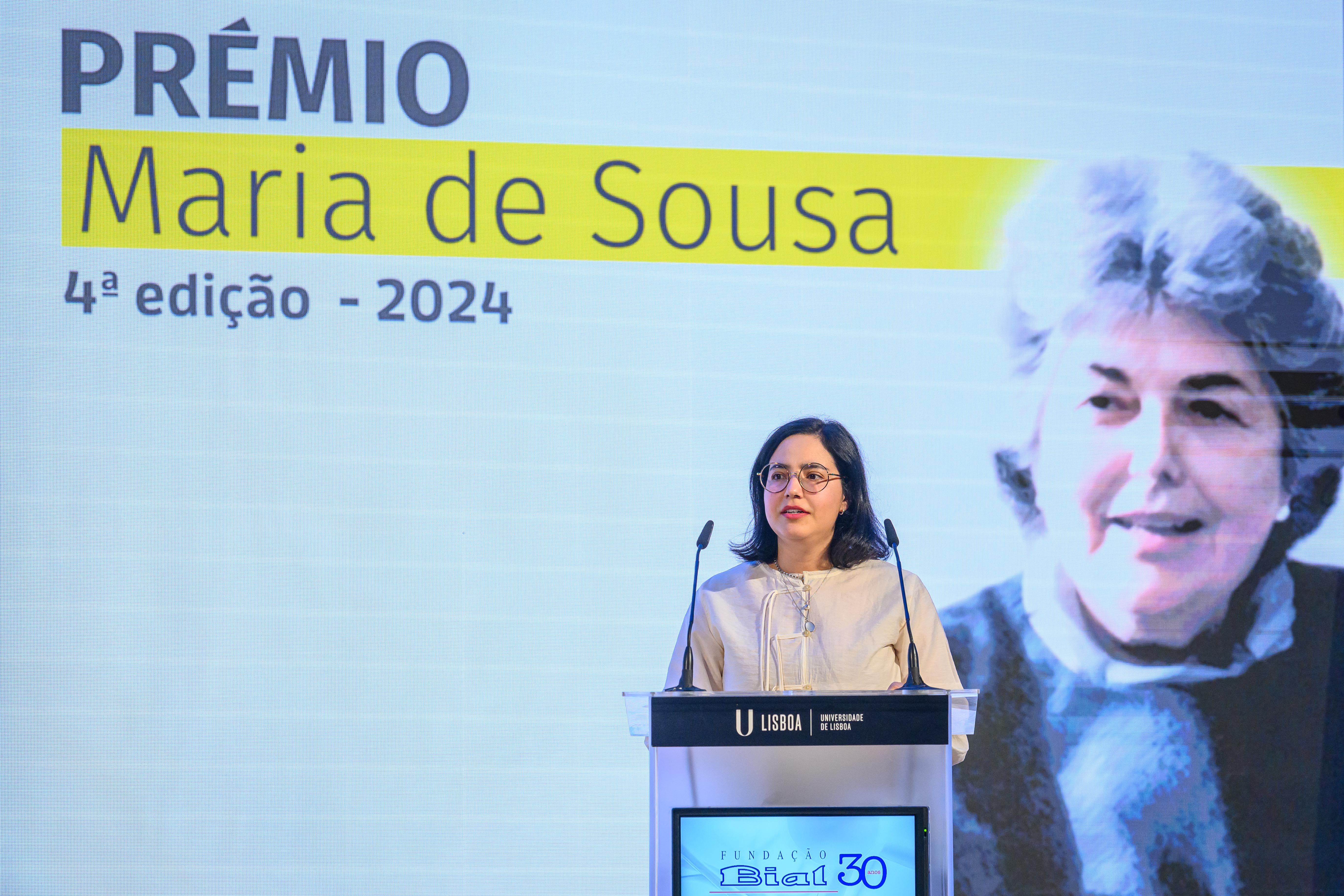
Ana Rita Araújo| BOOST-Age: Boosting the proliferative capacity within aged tiSsues to sustain youthful organ function
The aging of the world's population is putting a significant strain on healthcare systems, as co-morbidities related to chronic diseases become more prevalent with age. With this project, we want to understand whether the cells that proliferate longer throughout our lives play a protective role in maintaining the function of different tissues and help to age slower.
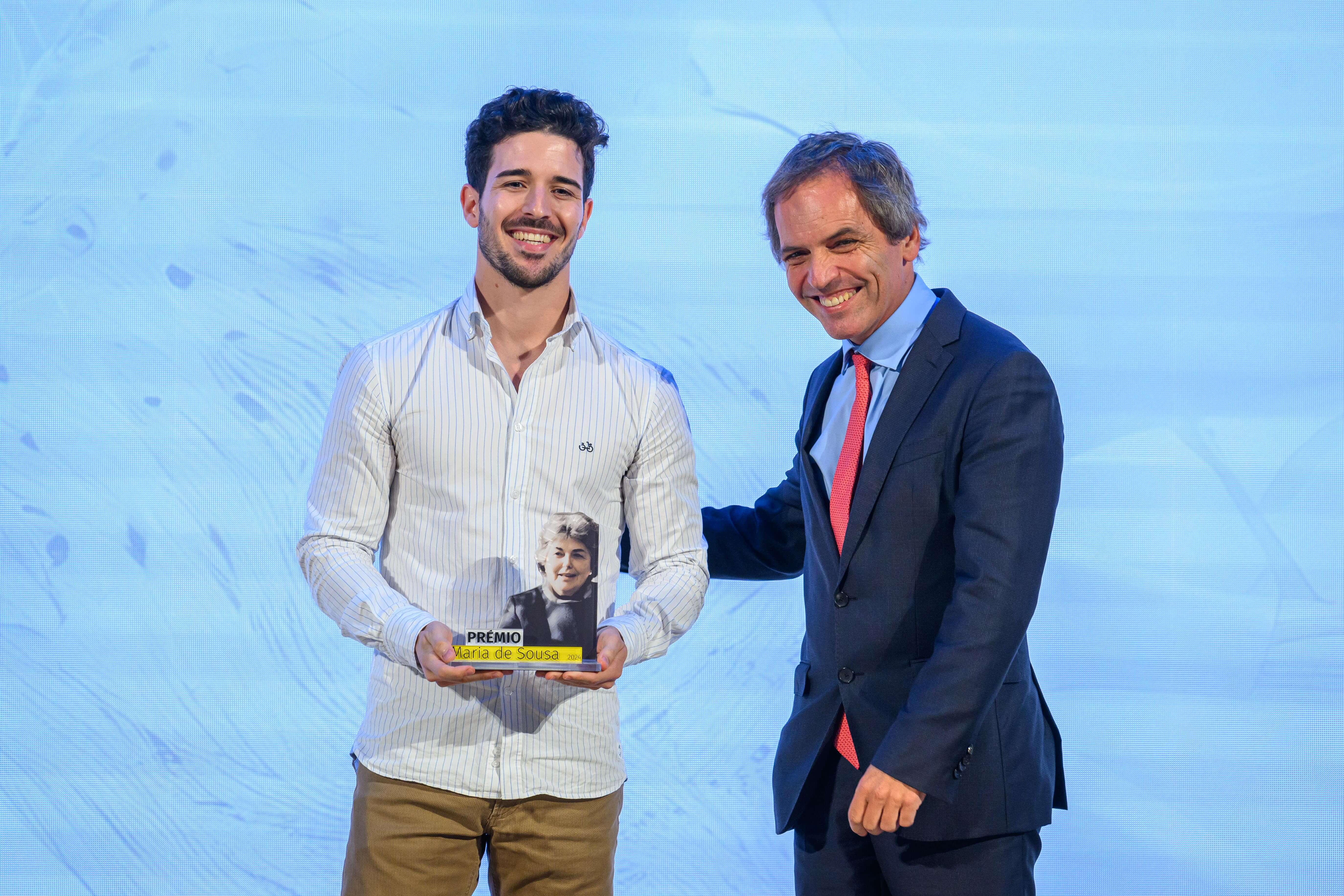
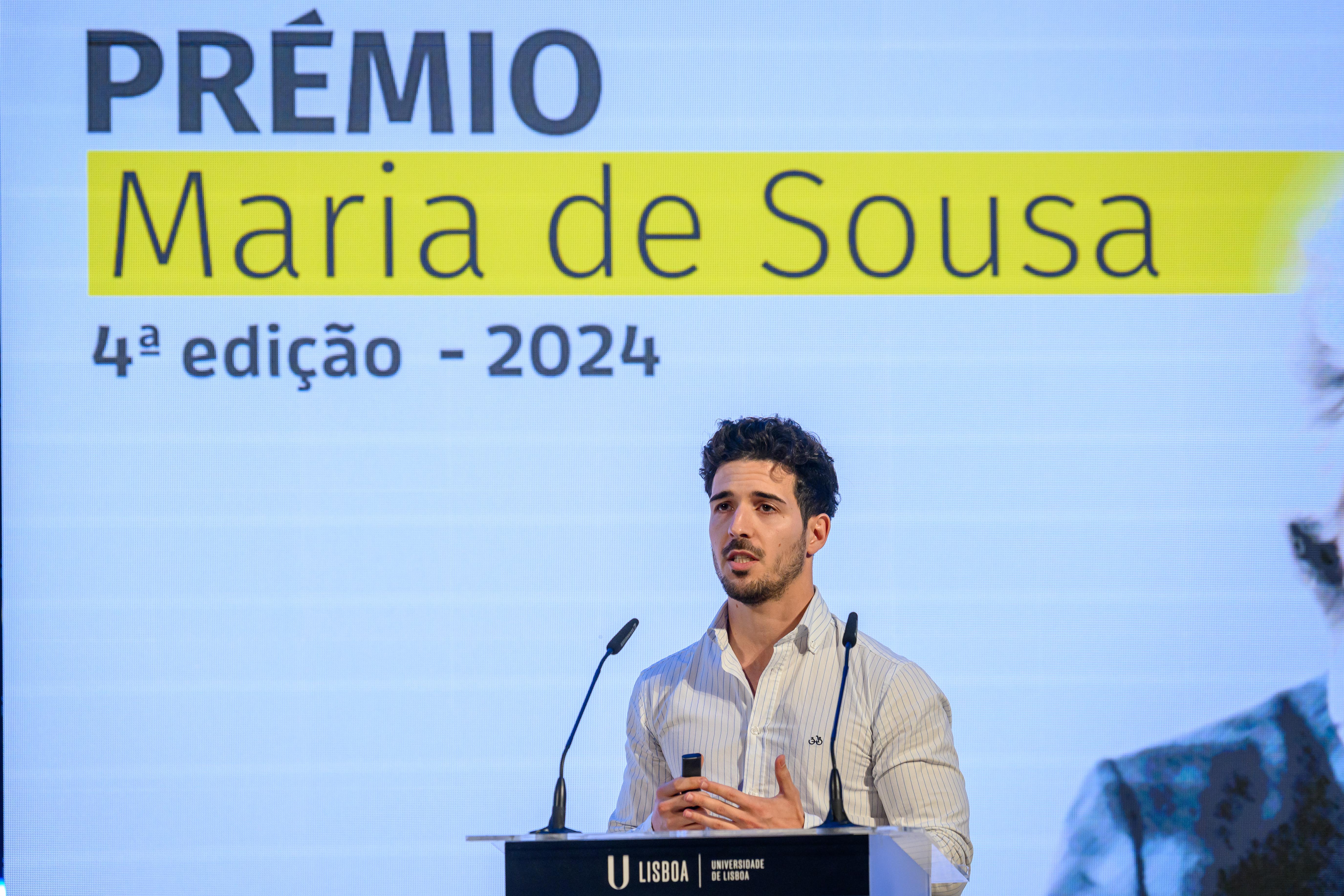
Samuel Gonçalves | Regulation of antifungal immunity by cholesterol metabolism in respiratory fungal disease
Invasive pulmonary aspergillosis (IPA) is an opportunistic fungal disease that affects 2 million immunocompromised individuals every year and whose diagnosis and treatment remain problematic, resulting in annual crude mortality rates of 85%. This project focuses on studying the molecular mechanisms by which cholesterol metabolism contributes to antifungal immune responses. A detailed understanding of how cellular metabolism can contribute to IPA susceptibility will allow us to find new therapeutic targets and develop new personalised medicine strategies.
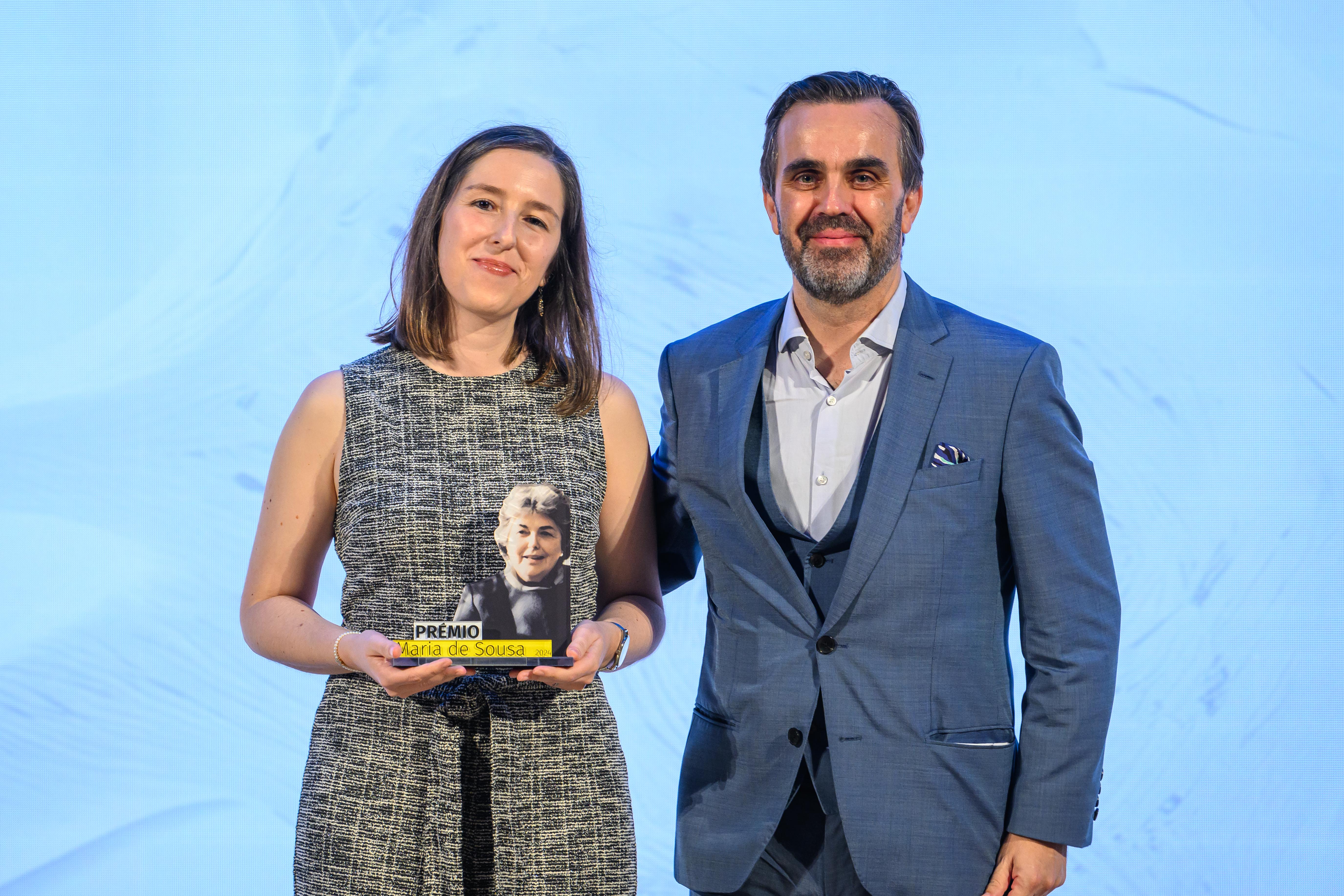
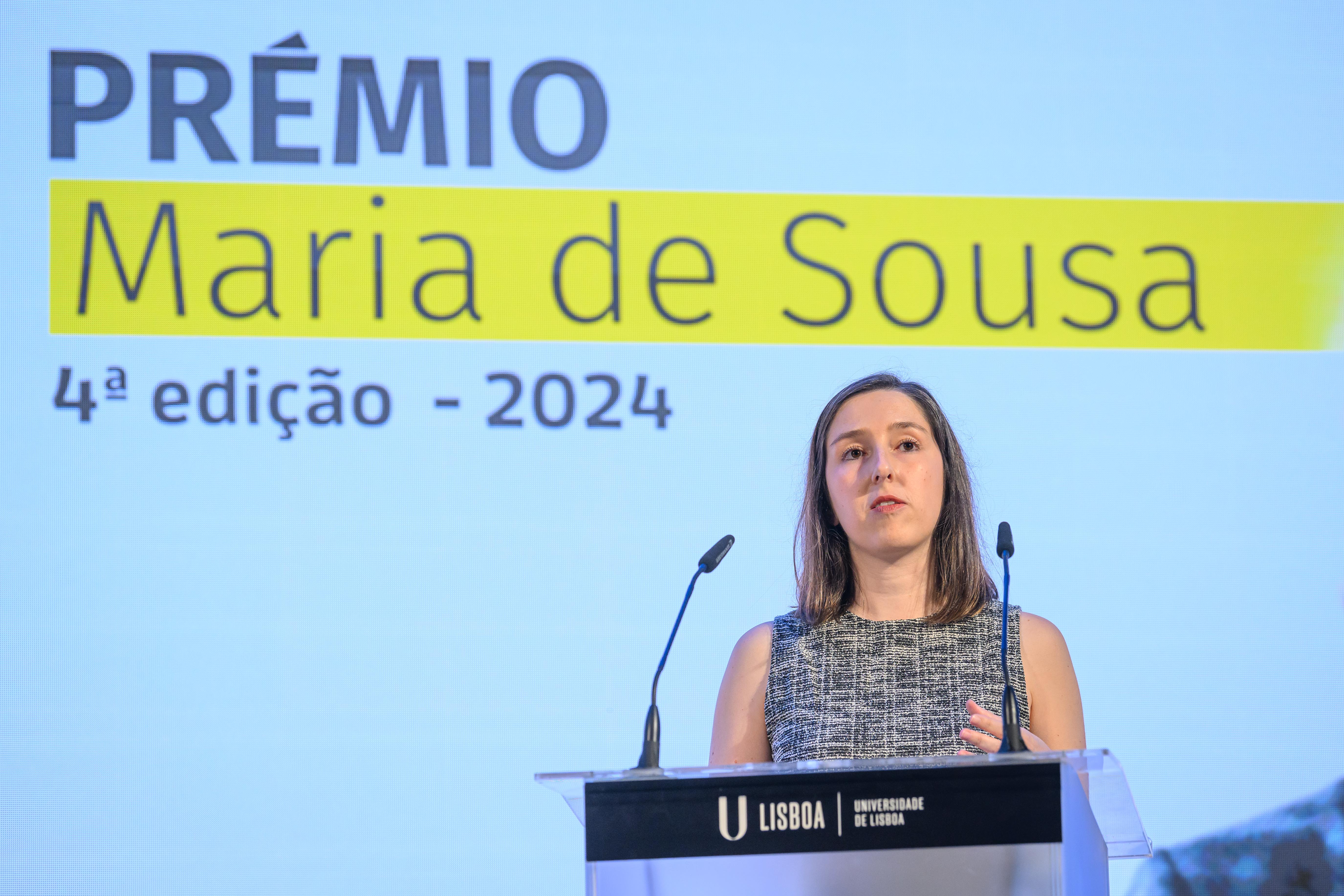
Joana Gaifem | Feeding immunity: glycans as nutritional players in host-microbiome dynamics in IBD
Inflammatory bowel disease (IBD), which is divided into Crohn's disease and ulcerative colitis, is characterised by inflammation in the intestine that has a major impact on a patient's quality of life. One of the biggest challenges in the clinical management of inflammatory bowel disease (IBD) is the multifactorial nature of this pathology. With our project we intend to study how the presence or absence of sugar (glycans) on the surface of intestinal cells can influence the microorganisms present in this organ, to develop a new strategy to promote intestinal health.

